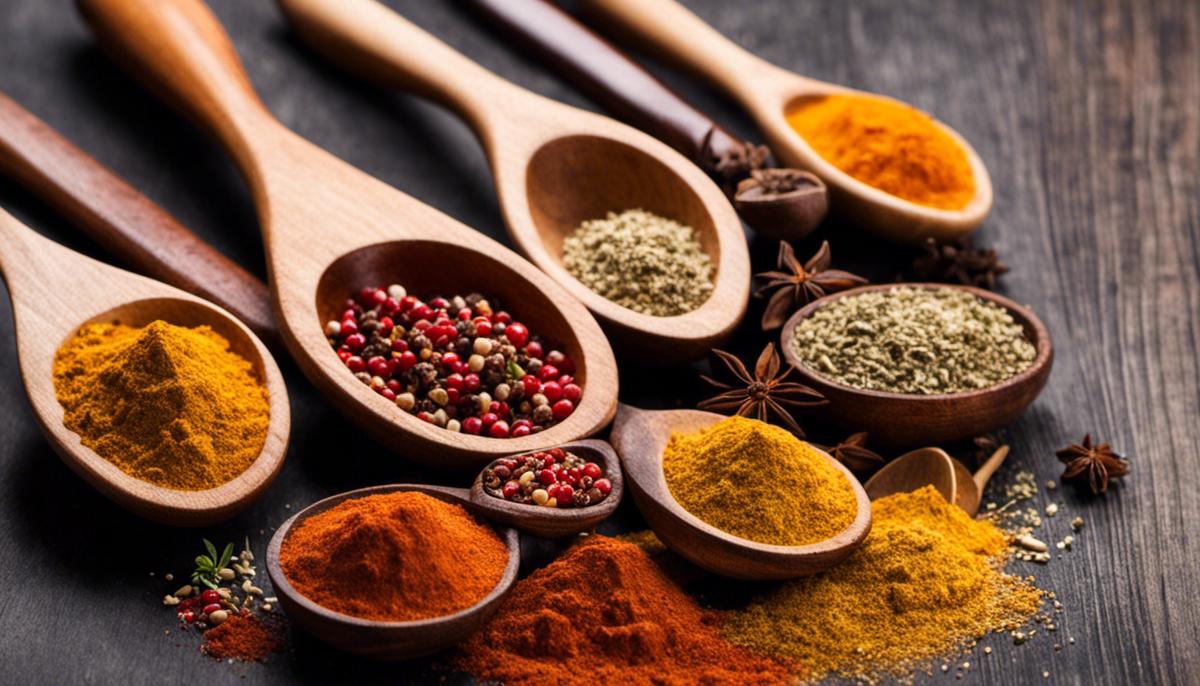There is a world of taste and flavor hidden in the small jars of seasonings that sit atop our kitchen shelves. These seasonings, while enhancing the enchantment of our meals, may sometimes carry hidden health threats. Many households unknowingly use certain seasonings that could, over time, contribute to health adversities. A critical re-evaluation of these everyday seasonings, their potential to cause harm if abused, and the inculcation of healthier alternatives, becomes necessary for the wellness of our bodies. Let’s embark on a culinary inquiry into these common, yet enigmatic, flavor enhancers that can sway the health quotient of our meals.
Table of Contents
Understanding The Commonly Used Seasonings
The Sweet, Savory, and Surprising Health Implications of Common Seasonings
In the world of culinary arts, seasonings are akin to the hidden superheroes of every dish. A delicate sprinkle of salt, a whisper of cracked pepper, or an unexpected dash of cumin can transform an ordinary dish into a feast for the taste buds. Experiencing exciting flavors is a joy that is second to none for a passionate food lover. However, amidst these gastronomic adventures, it becomes critical to remain aware of the potential health ramifications that some frequently used seasonings might bring.
One such everyday hero is Salt. As essential for life as it is for flavor, it’s a universal truth that the right amount of salt can bring any dish alive. However, when used excessively, it can lead to high blood pressure and other related cardiovascular diseases. To strike a healthy balance, considering options like potassium chloride salts or the internationally favored pink Himalayan salt can be beneficial.
Second on the list is Sugar. Often found in the sweet corner of pastry kitchens and comfort food recipes, it’s a beloved addition globally. Yet, it can be a villain in disguise. Overuse of sugar can lead to obesity, heart disease, and even The Big D – diabetes! Alternatives like honey, Agave syrup, or even fruits like dates, figs, and bananas can lend sweetness to your dishes without negative health implications.
Ever had a brush with the intense heat of chili peppers? Capsaicin, the compound responsible for their fiery reputation, is more than a spicy danger. While it can lead to gastrointestinal issues if used in excess, the health benefits are equally surprising. It includes pain relief, cardiovascular benefits, and even metabolism boosting properties.
Garlic and Onion, the dynamic duo of the culinary world, are common denominators in many cuisines. Besides their incredible flavor addition, they are loaded with beneficial compounds like allicin. While causing temporary bad breath, they also provide defense against heart diseases and bolster the immune system.
Talk about being bitter-sweet, Cinnamon might take the cake (or rather, the pastry!). Known for its sweet, woody fragrance and flavor, it also holds properties that can regulate blood sugar and aid in digestion, making it a darling of diabetic-friendly dishes.
Last but not least, let’s not forget the humble Turmeric, an unassuming golden hero. The primary active ingredient in Turmeric, curcumin, is recognized for its anti-inflammatory, antioxidant properties. However, consumed excessively, it can lead to stomach upset or ulcers.
In essence, it’s a dance – a dance of flavors and balance, where understanding the quantities, alternatives, and health implications forms the rhythm. The world of seasonings, while aromatic and flavorful, requires a discerning palate to navigate the health implications and potential benefits. After all, the greatest culinary delights are not just those that taste divine, but those that brilliantly fuse taste and health, creating a symphony of gastronomic gratification.
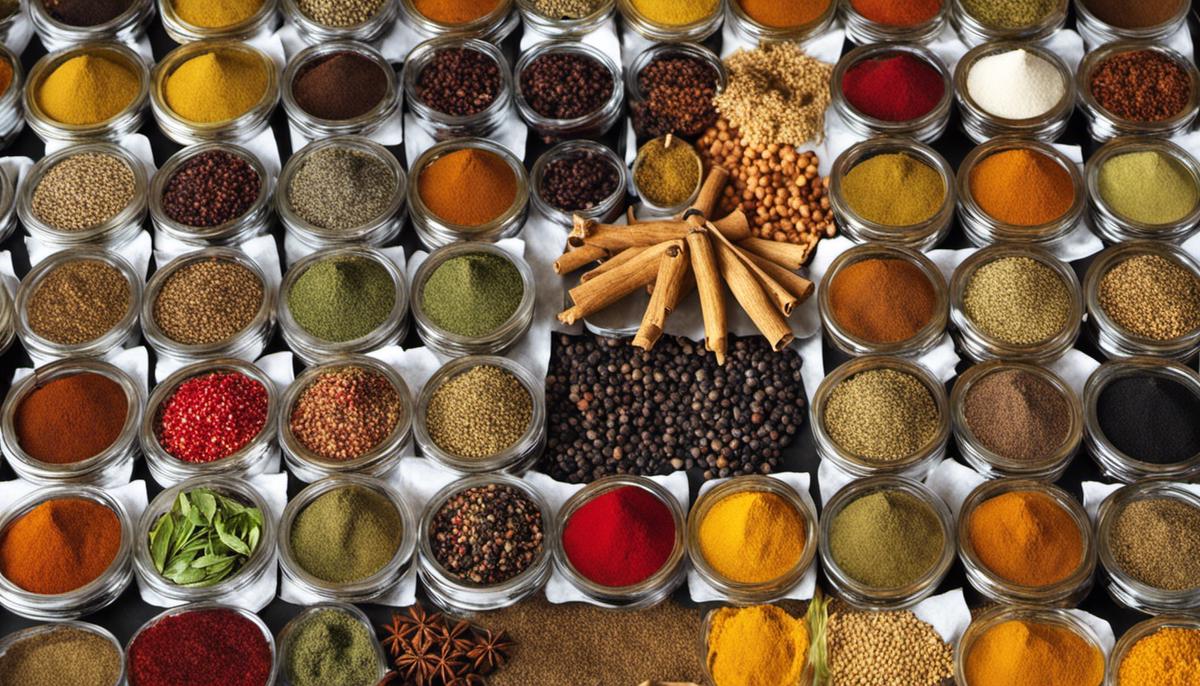
Unmasking The Health Dangers of Excessive Seasonings
Redefining the Flavor Profile: A Word of Caution on Over-Indulgence in Seasonings
Seasonings – they can magically transform a dish from bland to grand in seconds. But what happens when these sensational spice enhancers turn excessive in our diets? Beyond just curdling the flavor stance of a delicacy, they could be silently calibrating our health chart – for the worse.
Let’s start with monosodium glutamate (MSG), an umami dominator, a seasoning used so generously, especially in Asian cuisine. While MSG is known for enhancing flavors, over-indulgence can result in something called ‘MSG symptom complex’ which manifests itself through headaches, flushing, sweating, chest pain, and palpitations. If you frequently find yourself grappling with these symptoms, it might be worth cutting back.
Nutmeg, the spice known for its unique aroma and warm flavor, has a sinister side when overused. Consumed in large amounts, nutmeg can cause hallucinogenic effects due to the presence of a compound called myristicin. No, it doesn’t mean you’re on a culinary trip, but you might literally be on a ‘trip.’
Then there’s black pepper, the spice we all love and likely use on nearly every dish. Normally, it boosts digestion and provides relief from colds and coughs, thanks to its active compound piperine. But, much like our favorite superheroes, piperine has a dark side. Excessive black pepper consumption can lead to gastrointestinal issues such as ulcers and even negatively impacts fertility.
Lovage, frequently dubbed as Maggi plant, offers a unique flavor profile combined of celery and parsley. However, overindulgence in lovage might trigger photosensitive reactions as it contains furanocoumarins, compounds known for causing mild to severe skin inflammation when exposed to sunlight.
Now, let’s talk about a seasoning we can’t seem to escape – caffeine. Yes, it’s a seasoning; after all, it’s an element that flavors our life while kicking us into gear each morning. Unfortunately, much like other mentioned seasonings, too much isn’t exactly a good thing. Aside from potentially causing insomnia, an overabundance of caffeine can lead to high blood pressure, rapid heart rate, and addiction.
Finally, we turn our attention to licorice root, a sweet herb used in teas, while also making an exciting addition to sweet and savory dishes. Be mindful, though, that over-indulgence can lead to pseudoaldosteronism – a condition that can cause headaches, fatigue, high blood pressure, and even heart attacks due to an increase in water and sodium absorption.
“Everything in moderation,” has always been a guiding principle in food philosophy. Adhering to moderation doesn’t mean you have to compromise on flavor. On the contrary, it opens up a spectrum of spices and seasonings to experiment with, keeping your culinary journey alive and exciting!
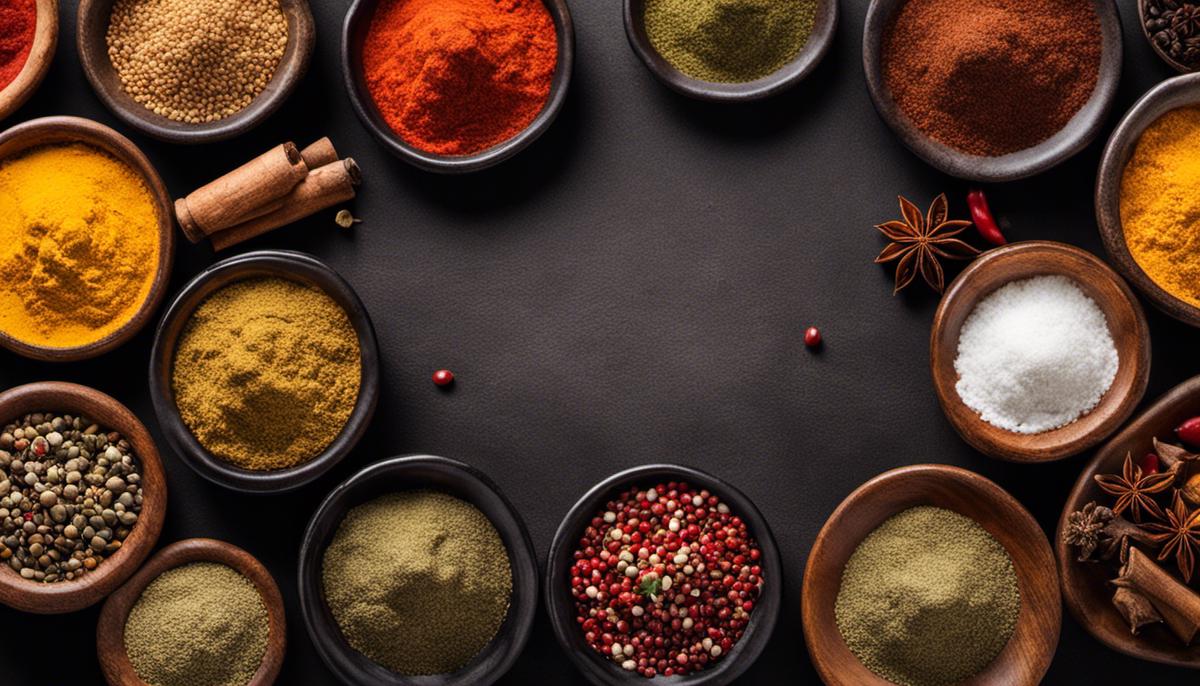
Seasoning Myths and Misconceptions
In continuing our exploration of misunderstood seasonings, we delve into the swirl of misconceptions around Monosodium glutamate (MSG), Nutmeg, Black Pepper, Lovage, Caffeine, and Licorice root.
Monosodium Glutamate, MSG, has been marred by a negative reputation for years. Most commonly associated with Chinese cuisine, MSG is simply a type of sodium that adds a savory flavor, often referred to as “umami.” Studies show no significant link between MSG and adverse health effects, debunking the myth of ‘Chinese Restaurant Syndrome.’ The FDA recognizes MSG as a safe food ingredient, and it can be enjoyed in moderation.
Contrary to popular belief, Nutmeg isn’t just for holiday pumpkin pies. Historically, it’s been plagued by tales of hallucinogenic attributes. However, rest assured, the amount typically used in cooking provides flavor depth and warmth without the risk of psychedelic experiences. Consumed in regular culinary amounts, nutmeg adds a deep, warm note to dishes.
Many health-conscious individuals might be surprised to find out that black pepper is more than just a common table top seasoning. Its active compound, piperine, is a potent antioxidant and has the ability to enhance the absorption of certain nutrients such as selenium, curcumin, and beta-carotene. However, the notion that pepper directly causes gastric ulcers is unsubstantiated. While it may exacerbate symptoms, gastric ulcers are usually caused by factors like stress and H. pylori bacteria.
Lovage, a lesser-known herb with a flavor profile akin to celery, comes with its supposed caveat – the notion that it induces menstruation and can cause miscarriages. However, these effects apply only when consumed in excessive, non-dietary amounts. As a culinary seasoning, lovage is not only safe but it adds earthiness and depth to soups, stews, and broths.
Caffeine, though not typically grouped with seasonings, is an integral component in making foods like chocolate and beverages such as coffee and tea. The health concerns ordinarily associated with caffeine include sleep disruption and cardiovascular issues. However, moderate caffeine consumption (classified as up to 400mg, equivalent to 4 cups of coffee daily) is generally recognized as safe by the FDA. Benefits from moderate caffeine consumption include heightened alertness and potential protection against cognitive decline and certain illnesses like Parkinson’s Disease.
Lastly, licorice root often comes with whispers of toxicity. However, the compound that can pose a risk – glycyrrhizin – is most commonly a concern if ingested in concentrated licorice extract or large portions in candy. It’s hardly a worry in typical culinary uses where licorice root gently infuses its distinctive slightly-sweet anise flavor.
The bottom line is, in the culinary world, moderation and variety are key. These ‘unhealthy’ seasonings often enhance flavor profiles and have surprisingly healthful attributes. So, let’s debunk the myths, embrace the facts, and enjoy the tantalizing world of flavors that these misunderstood seasonings can bring to the plate. After all, variety is the spice of life!
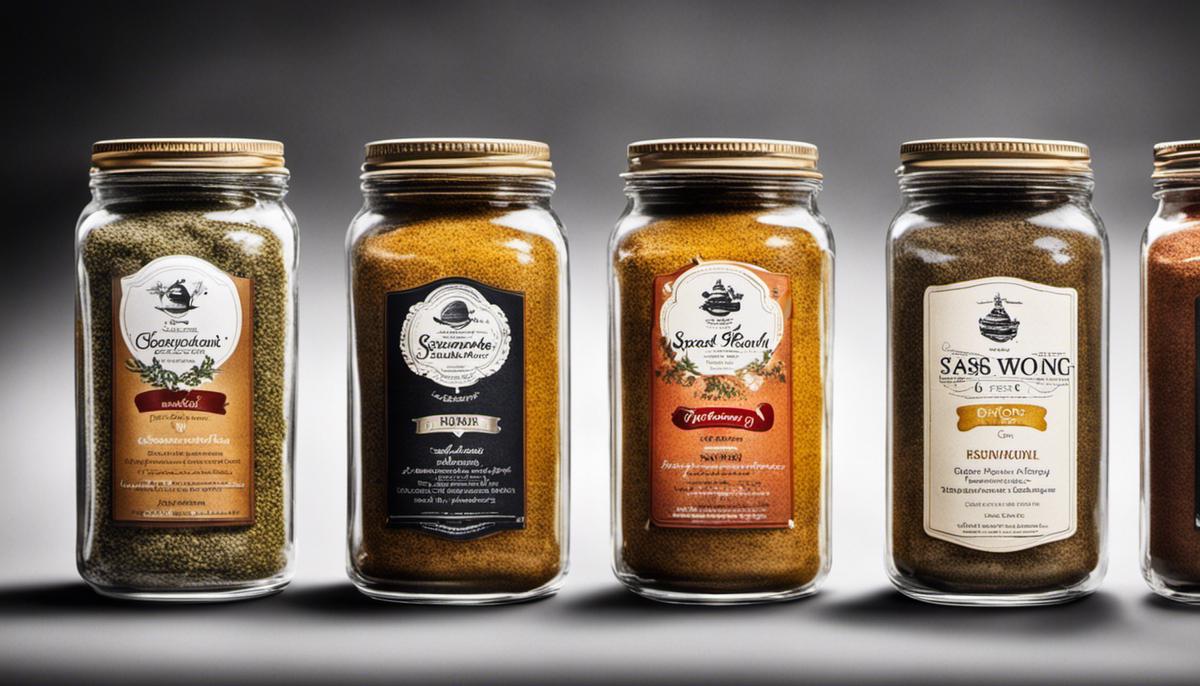
Healthy Alternatives to Harmful Seasonings
Diving straight into the dazzling world of culinary arts, let’s consider Monosodium Glutamate (MSG). Often invoked as a frightful ingredient due to previous misconceptions, scientific studies show MSG is safe for consumption. But if you prefer to play it safe or are allergic to MSG, using alternatives like tomato powder or Parmesan cheese can offer the same umami flavor.
Dancing on to aromatic Nutmeg. Known for its unique earthen sweetness and a tinge of spice, this seasoning is nature’s delight. However, overconsumption may lead to psychoactive effects. No worries, alternatives like garam masala, pumpkin pie spice, or a ginger-cinnamon combo can fill in for nutmeg without a hitch.
From the burst of spice to the punch of flavors, Black Pepper is a must-have in every pantry. Yet, it too has downsides, such as potential digestive issues. You can substitute it with white pepper for a milder taste or gravitate towards capers and paprika if you are an adventurous culinary explorer.
Let’s swing to Lovage, also known as “love parsley.” This lesser-known herb can cause photosensitivity in some people, tarnishing the romance. Fear not lovers of Lovage, Celery leaves or parsley are great substitutes that offer the similar burst of fresh botanical flavor.
Talk about a buzz killer – Caffeine. Enjoyed by millions yet causes sleeplessness in night owls. For those seeking a wake-up call minus the tossing and turning, herbal green teas or a refreshing glass of lemon-infused water can perk up your senses without loading up on caffeine.
Ending on a sweet note – Licorice Root, while brilliant at satisfying the craving for sweetness can cause health problems when consumed excessively. Thanks to Stevia, a natural sweetener, there’s no more choosing between your cravings and your health.
Delectable cuisine, filled with flavor yet worth the health, can be a juggling act. But by experimenting with these substitutes, one can create a gourmet meal, rich in flavor, minus the health risks. It’s gastronomy and wellbeing working together – the real recipe for pleasure!
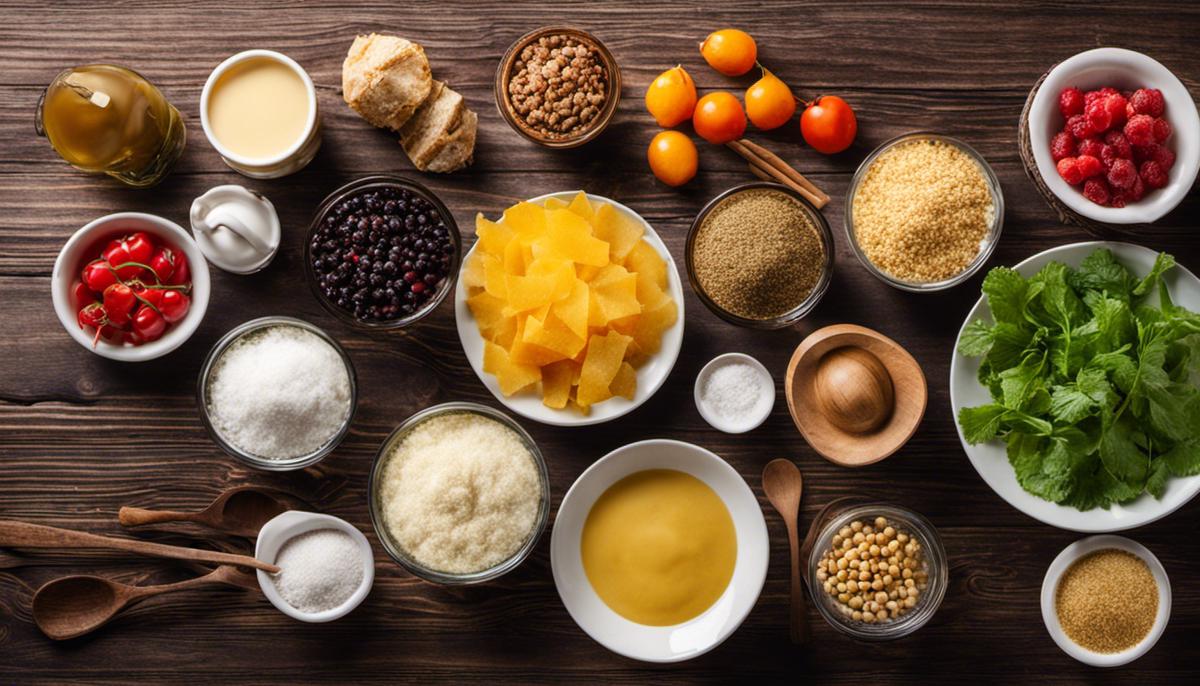
Ultimately after fully understanding the possible health implications of certain seasonings and debunking myths related to them, it’s evident that judicious use and the adoption of healthier alternatives is the need of the hour. Culinary arts bestow upon us the freedom to experiment and adapt, and switching to healthier seasoning substitutes can be an exhilarating part of the journey. Complementing flavor with wellbeing, recrafting the composition of our spice rack could direct us towards a healthier lifestyle while still indulging our love for tasteful food.

Rajan Moonbeam is a dedicated health writer with a Master of Public Health (MPH) degree. Specializing in holistic wellness and preventive care, Rajan combines scientific research with natural approaches to health, offering readers practical advice on living their healthiest life. His work is a beacon for those seeking to navigate the path to well-being with integrity and balance.

